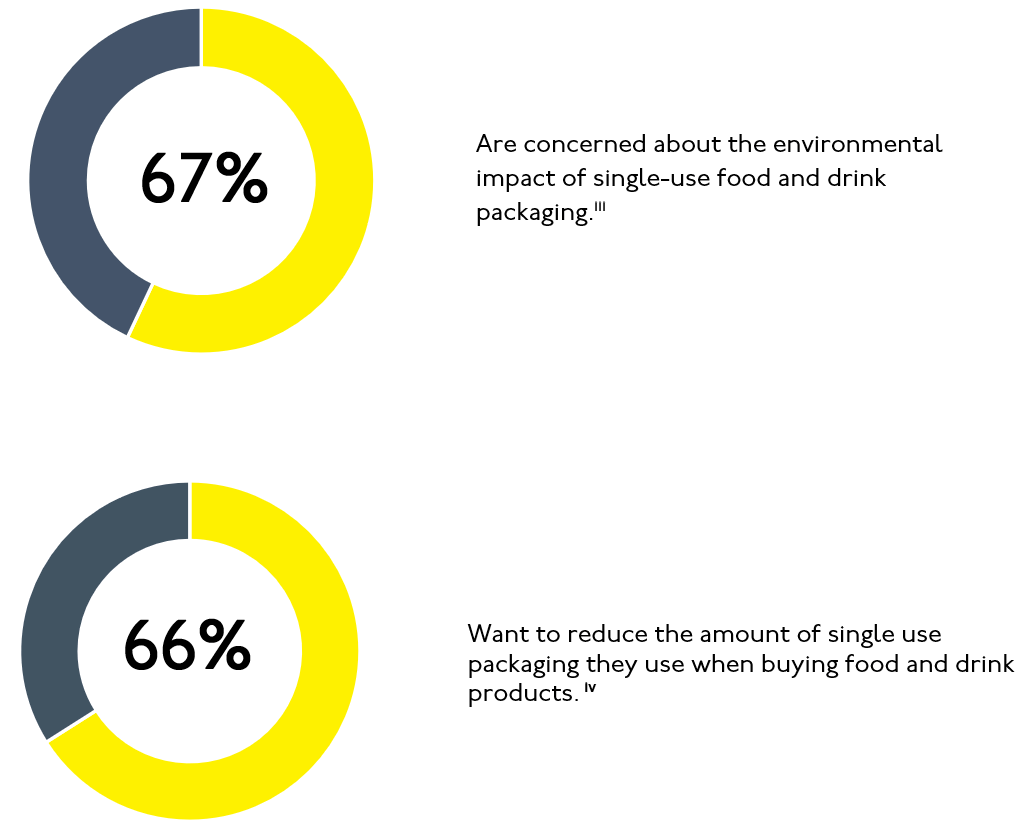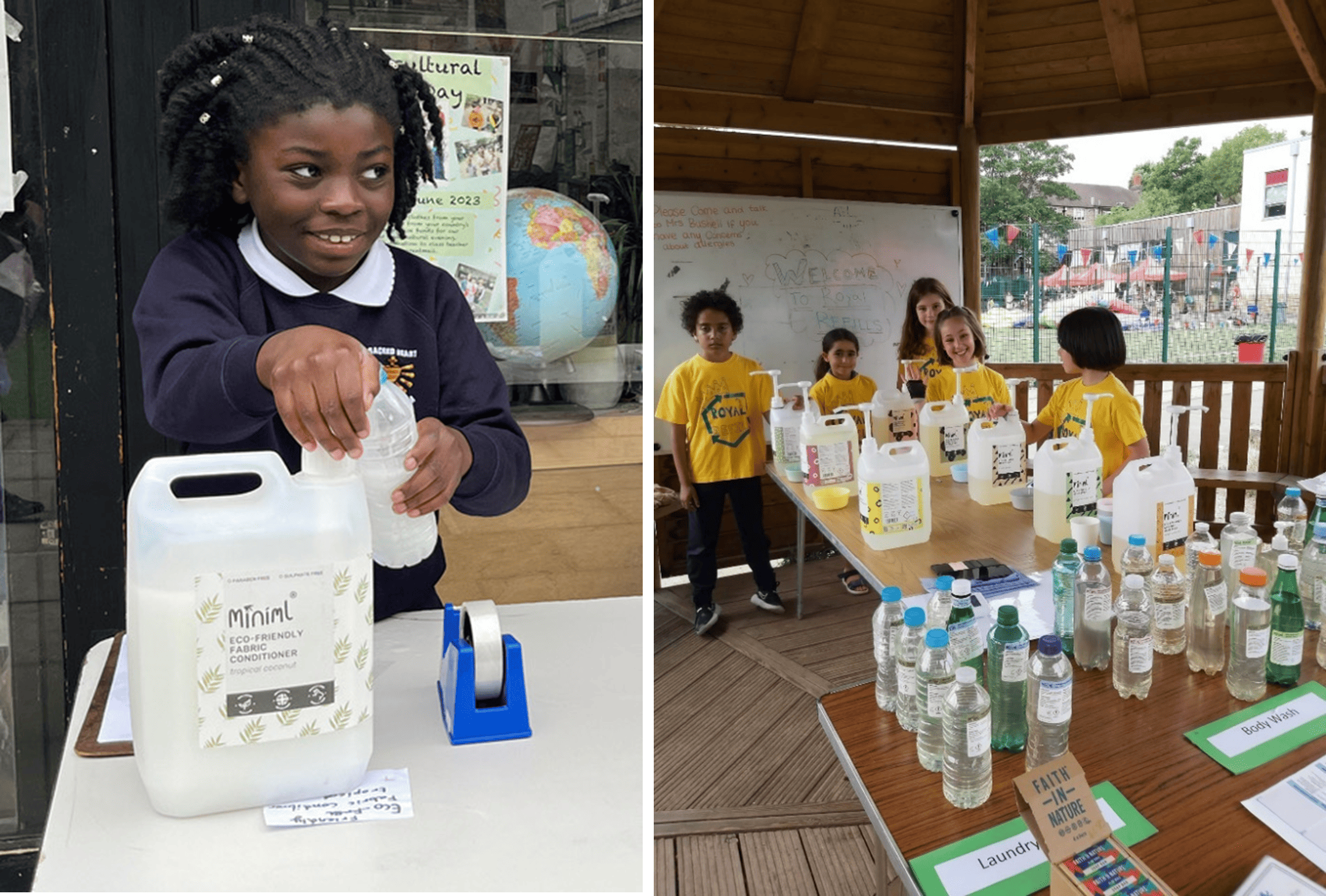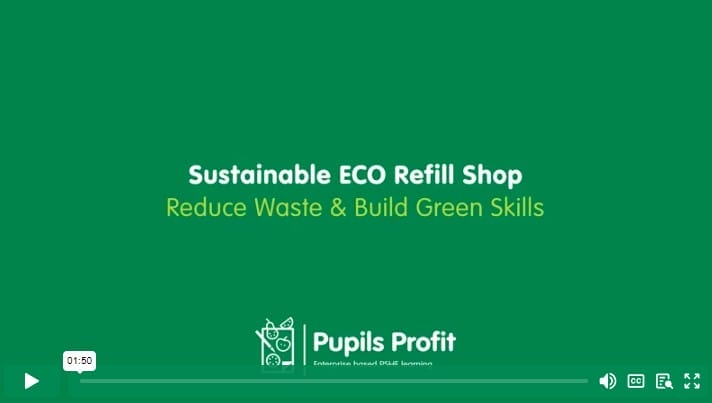Snapshot
- Pupils Profit supports pupils to set up and operate an eco-refill shop in their school. The initiative empowers children to play their part in protecting the environment and learn transferrable green skills. The initiative provides parents, carers and staff with a convenient and cost-saving way to refill household products, whilst also reducing single-use plastic consumption.
- ReLondon invited Pupils Profit to assist five schools in Heston, Hounslow to launch an eco-refill shop from scratch, as part of ReLondon and the London Borough of Hounslow’s ‘Heston in the Loop’ circular neighbourhood pilot project, which brought Hounslow Council together with businesses and community groups to create a low waste neighbourhood in Heston, Hounslow.
- The London boroughs of Richmond and Wandsworth rolled out the same model to seven schools in Wandsworth and four in Richmond.
- Data collected suggests that over 2,200 single-use plastic containers have been prevented from becoming waste since these shops opened.
- From Hounslow to Richmond and Wandsworth, Pupils Profit’s school refill shops are spreading across London’s boroughs and beyond. Your council could be next! Get in touch with Pupils Profit to find out more about setting up refill shops in schools in your borough.
The challenge: single-use packaging
In London, plastic makes up 11% of the stuff that ends up in household bins – and most of that is single-use packaging. If we could bring down the amount of plastic packaging that is used and thrown away in London, this could reduce year-on-year CO2e emissions and help tackle the climate emergency.
It’s also something that Londoners want: Most Londoners are concerned about the environmental impact of the single-use packaging they buy and want to reduce how much of it they use. But single-use plastic packaging can be difficult to avoid.

Buying goods in refillable formats – where customers bring their own container to fill up, and where products are sold by weight or volume – can help, but finding cost-effective and convenient refill options can be challenging in a world where shoppers have grown accustomed to and want a shopping experience that offers competitive prices, proximity, and ease.
Introducing Pupils Profit: refill revolutionaries
Pupils Profit supports pupils to set up and operate a refill shop in their school and, in doing so, helps parents and guardians to reduce the amount of single-use plastic they are buying.
In the Spring of 2022, ReLondon and the London borough of Hounslow were working together on the ‘Heston in the Loop’ circular neighbourhood pilot project, which brought Hounslow Council together with businesses and community groups to create a low waste neighbourhood in Heston, Hounslow.
ReLondon invited Pupils Profit to be part of this exciting circular neighbourhood project and assist five schools in Heston, Hounslow to launch a refill shop from scratch.
Pupils Profit provided teachers with the training resources they needed to support KS2 and KS3 children to develop a business plan for the shop, apply for different roles, order products, launch and operate the shop, and market the products – empowering children to play their part in protecting the environment and learn transferrable green skills.
These shops are opened monthly and allow parents and guardians to refill their own containers with household products such as detergent, washing up liquid and shampoo.
Hounslow Council and ReLondon covered the initial costs of setting up the refill shops, which became self-funded once up and running.
Lizzie Gimblett, Founder, Pupils ProfitRefill shops in schools are a wonderfully simple approach to unlocking refilling for many more people, and normalising reuse and circularity for children. It’s fun and affordable, and offers a wealth of learning opportunities.
Scaling to Richmond and Wandsworth boroughs
From a Pupils Profit survey of 500 residents in the London boroughs of Richmond and Wandsworth, 96% of respondents said they would like a school-based refill shop in the borough.
The London boroughs of Richmond and Wandsworth therefore rolled out the same model as Hounslow to seven schools in Wandsworth and four in Richmond.

Data collected suggests that almost 1,500 single-use plastic containers had been prevented from becoming waste between June and November 2023.
The refill shops were reported to be supporting 79% of residents in Wandsworth and 92% of Richmond to refill more.
To overcome the capacity/time constraints of school teachers, Pupils Profit is now moving towards a hybrid learning model, with online e-learning resources to onboard pupils, reducing the time burden on teachers and giving the children more autonomy and leadership experience.
Ali Malvern, Policy & Programme Lead, Climate Change & Sustainability, London borough of Richmond and WandsworthCreating eco-refill shops within schools is a great way to increase understanding among children and their parents on their plastic consumption, while providing an easy and accessible way to take action to reduce plastic waste. It would be great to see more of this happening across London and the UK!
What’s next for refill shops in schools?
Pupils Profit’s refill shops are now opening in Kingston, Hammersmith and Fulham, Hackney, Harrow and Ealing. They’re also being set up outside of London, including in Essex and Greater Manchester.
If your council would like to find out more about setting up and operating a refill shop in schools in your borough, get in touch with Pupils Profit via ReLondon’s matchmaker platform to find out more.

Learn more about Pupils Profit eco-refill shops
[iii] Hubbub research survey. Total sample size was 3000. Fieldwork was undertaken between 4th –7th April 2022. The figures presented here are for the Greater London segment of the sample, which represents 13% of the total sample size, and represent those that have agreed (net) with the following statement: “I’m concerned about the environmental impact of single use food and drink packaging”. Raw data is available here: https://www.hubbub.org.uk/our-polling-data
[iv] Hubbub research survey. Total sample size was 3000. Fieldwork was undertaken between 4th –7th April 2022. The figures presented here are for the Greater London segment of the sample, which represents 13% of the total sample size, and represent those that have agreed (net) with the following statement: “I want to reduce the amount of single use packaging I use when buying food and drink products”. Raw data is available here: https://www.hubbub.org.uk/our-polling-data


